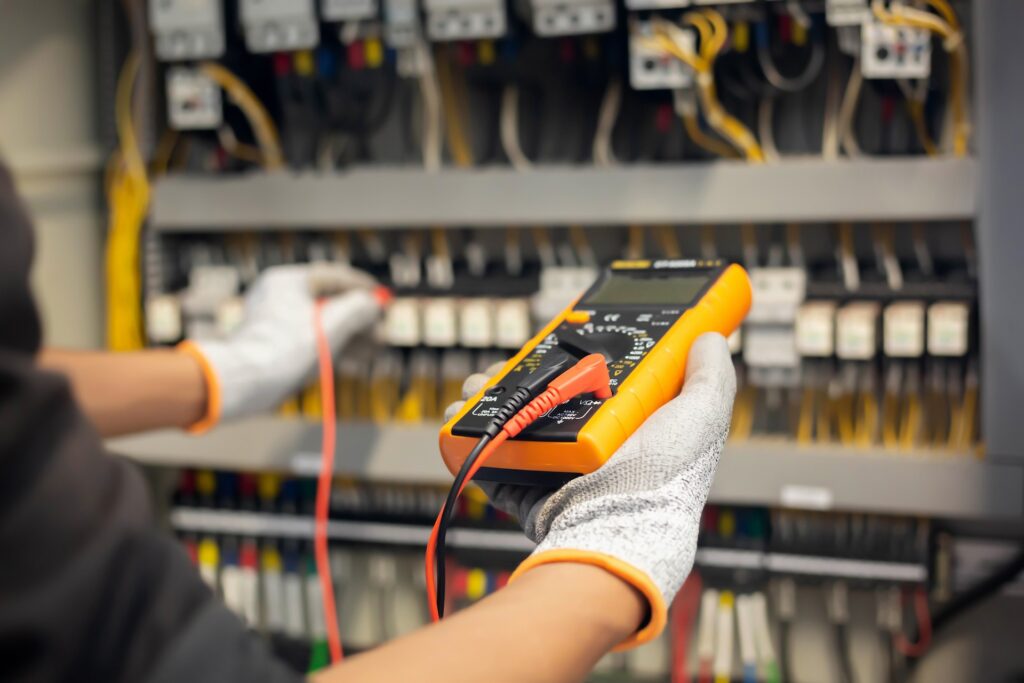
Comprehensive Guide to Commercial Electrical Installation Services
Reliable electrical systems are the backbone of any commercial setting, ensuring that all operations run smoothly and efficiently. From powering essential equipment to providing lighting and security, the importance of a well-installed and maintained electrical system cannot be overstated. Commercial electrical installation services encompass a wide range of tasks designed to meet the complex needs of businesses, ensuring safety, compliance, and operational efficiency.
Understanding Commercial Electrical Installation
Commercial electrical installation refers to the process of setting up electrical systems in commercial buildings such as offices, retail stores, warehouses, and factories. This process includes the installation of wiring, lighting, power outlets, and specialized systems like data cabling and security alarms. Unlike residential installations, commercial projects often involve higher voltages and more complex requirements.
Differences Between Commercial and Residential Electrical Installations
While both residential and commercial electrical installations involve similar principles, the scale and complexity differ significantly. Commercial installations require higher power capacities, specialized equipment, and adherence to stricter codes and standards. Additionally, commercial electricians often work with three-phase power systems, which are more efficient for high-load environments compared to the single-phase systems typically used in residential settings.
Key Components of Commercial Electrical Systems
- Wiring and Cabling: The backbone of any electrical system, ensuring the safe and efficient transmission of electricity.
- Lighting Systems: Essential for visibility and safety, including general, task, and emergency lighting.
- Power Distribution: Systems that manage and distribute electricity throughout the building, including circuit breakers and distribution panels.
- Specialized Systems: Including data and communication networks, security systems, and fire alarms.
Types of Commercial Electrical Installation Services
Commercial electrical installation services encompass a wide array of tasks tailored to meet the diverse needs of businesses. These services ensure that all electrical systems are safe, efficient, and compliant with industry standards.
- New Construction Electrical Installation: This involves setting up electrical systems from scratch in new buildings, including all wiring, lighting, power distribution, and specialized systems. It requires careful planning and coordination with other trades to ensure a seamless installation process.
- Electrical System Upgrades and Retrofitting: Upgrading outdated electrical systems to meet current standards and demands. This can involve replacing old wiring, installing new circuit breakers, and enhancing overall system capacity to accommodate modern equipment and technologies.
- Lighting Installation and Maintenance: Installing and maintaining various lighting systems, from general illumination to specialized task lighting. This includes energy-efficient solutions like LED lighting and smart lighting controls.
- Power Distribution and Management: Ensuring efficient and reliable power distribution throughout the building. This includes installing and maintaining distribution panels, circuit breakers, and backup power solutions.
- Emergency and Backup Power Solutions: Installing systems that provide power during outages, such as generators and uninterruptible power supplies (UPS). These systems are critical for maintaining operations during power failures.
- Data and Communication Cabling: Setting up the infrastructure for data and communication networks, including fiber optics, Ethernet cables, and telephone lines. This is essential for modern businesses that rely on fast and reliable internet connectivity.
- Security and Fire Alarm Systems Installation: Installing and maintaining security systems, including surveillance cameras, access control systems, and fire alarms. These systems are vital for protecting the property and ensuring the safety of occupants.
Planning and Design
Effective planning and design are the cornerstones of a successful commercial electrical installation. These steps ensure that the system is tailored to meet the specific needs of the business while adhering to safety and efficiency standards.
- Initial Consultation and Site Assessment: The planning process begins with a thorough consultation and site assessment to understand the specific needs and requirements of the business. This involves evaluating the building layout, power requirements, and any special considerations.
- Electrical Load Calculations and Planning: Calculating the electrical load to ensure that the system can handle the power demands of the business. This includes considering peak usage times and future expansion plans.
- Compliance with Local Codes and Regulations: Ensuring that all installations comply with local building codes and electrical standards. This is crucial for safety and to avoid legal issues.
- Sustainable and Energy-Efficient Design Considerations: Incorporating sustainable practices and energy-efficient solutions into the design. This can involve using energy-saving lighting, efficient power distribution systems, and renewable energy sources like solar panels.
Installation Process
The installation process is a critical phase where planning turns into action, transforming designs into functional electrical systems. This phase requires meticulous attention to detail and strict adherence to safety protocols to ensure a successful and safe installation.
- Pre-Installation Preparations: Preparing the site for installation, including setting up temporary power sources, ensuring safety measures are in place, and coordinating with other trades.
- Step-by-Step Installation Procedures: Following a detailed plan to install the electrical system. This involves running wiring, setting up distribution panels, installing lighting and outlets, and connecting specialized systems.
- Coordination with Other Contractors and Trades: Working closely with other contractors, such as plumbers and HVAC technicians, to ensure that the electrical system integrates smoothly with other building systems.
- Safety Protocols and Risk Management: Implementing strict safety protocols to protect workers and occupants. This includes using personal protective equipment (PPE), following safety guidelines, and conducting regular safety audits.
Post-Installation Services
Post-installation services are essential for ensuring the long-term reliability and performance of the electrical system. These services help maintain optimal functionality and address any issues that may arise after the initial installation.
- Testing and Commissioning: Thoroughly testing the electrical system to ensure it operates correctly and safely. This includes checking for proper voltage levels, inspecting connections, and verifying the operation of all components.
- Regular Maintenance and Inspections: Providing ongoing maintenance to keep the system in good working order. Regular inspections can identify potential issues before they become serious problems.
- Troubleshooting and Repair Services: Offering prompt troubleshooting and repair services to address any issues that arise. This ensures minimal downtime and disruption to business operations.
- Upgrades and Expansions: Supporting future upgrades and expansions as the business grows. This can involve adding new circuits, increasing system capacity, or integrating new technologies.
Choosing the Right Electrical Contractor
Selecting the right electrical contractor is a crucial decision that can impact the success of your project. A qualified and experienced contractor will ensure that the installation is completed safely, efficiently, and to the highest standards.
- Qualifications and Certifications to Look For: Ensure that the contractor has the necessary qualifications and certifications. This includes licenses, insurance, and any specialized training required for commercial installations.
- Importance of Experience and Expertise: Look for contractors with a proven track record in commercial electrical installations. Experience and expertise are crucial for handling the complexities of these projects.
- Reviewing Portfolios and Past Projects: Examine the contractor’s portfolio and past projects to assess their capabilities and quality of work. This can provide insight into their experience with similar projects.
- Customer Testimonials and Reviews: Check customer testimonials and reviews to gauge the contractor’s reputation and reliability. Positive feedback from past clients is a good indicator of quality service.
- Cost Considerations and Getting Accurate Estimates: Obtain detailed estimates from multiple contractors to compare costs. Ensure that the estimates are comprehensive and include all potential expenses to avoid surprises later.
Future Trends in Commercial Electrical Installations
The field of commercial electrical installations is rapidly evolving, driven by technological advancements and a growing focus on sustainability. Staying informed about these trends can help businesses optimize their electrical systems for the future.
- Advancements in Technology and Smart Systems: The integration of smart systems and advanced technologies is transforming commercial electrical installations. This includes the use of smart lighting, automated controls, and energy management systems.
- Integration of Renewable Energy Sources: More businesses are incorporating renewable energy sources like solar and wind power into their electrical systems. This not only reduces environmental impact but can also lead to cost savings.
- The Rise of Automation and IoT in Commercial Buildings: Automation and the Internet of Things (IoT) are revolutionizing commercial buildings, enabling greater control and efficiency. This includes automated lighting, HVAC systems, and security systems that can be controlled remotely.
Reliable electrical systems are critical for the success of any business. Professional commercial electrical installation services ensure that these systems are installed correctly, safely, and efficiently. By understanding the different types of services available, the planning and design process, and the importance of choosing the right contractor, businesses can make informed decisions to meet their electrical needs. As technology continues to evolve, staying ahead of trends like smart systems and renewable energy integration will further enhance the efficiency and sustainability of commercial electrical installations. For any business looking to upgrade or install new electrical systems, consulting with expert contractors is the key to achieving optimal results.



